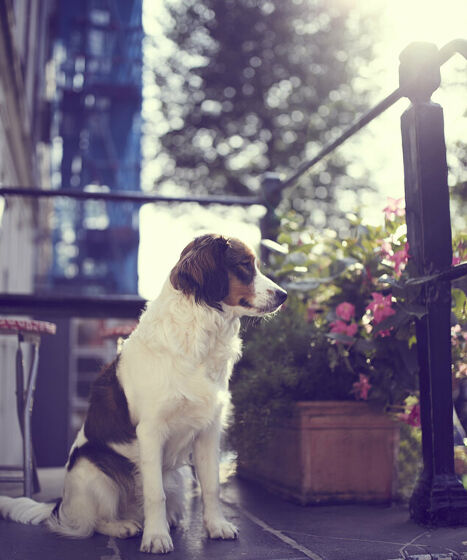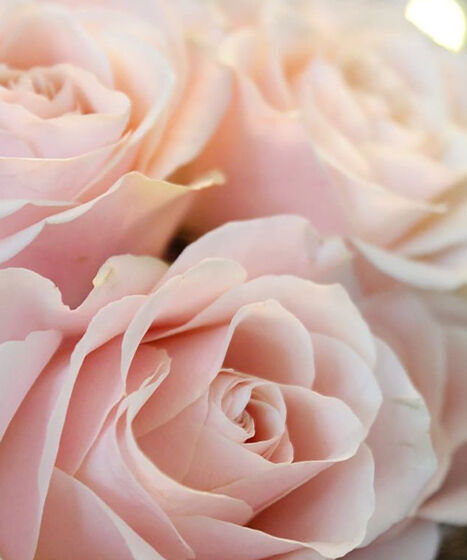- Free shipping and free returns
- Washable wrinkle free couture
- Dress up or dress down
- Timeless with a perfect fit
We care

Corporate Social Responsibility
We are all responsible for the impact we have on our surroundings.
The fashion industry has a large social and environmental footprint worldwide. The impact of the industry is often negative: poor employment conditions, low wages, child labour, discrimination and forced labour are examples of the negative social impact of the industry. In the ecological area the industry is responsible for large CO2 emissions due to transport around the globe, pollution in the chemical processes used in dying or producing fabrics, and closer to home: the waste created when consumers dispose of clothes (or the fashion companies do due to overproduction), the footprint of webshop returns, wrapping and packaging materials, and micro fibers that end up in the water through our washing machines. And last but not least, animal welfare is not frequently a priority, leading to shocking situations in production of for example wool or leather.
At LaDress, we want to take good care of the people that work in our supply chain. We also want to limit our ecological footprint as best as we can. We want to empower people and take good care of our planet.
In our Corporate Social Responsibility (CSR) policy, we describe (Part I) how we work – our strategy to take our responsibility, (Part II) how we have assessed the risks in our supply chain and how we deal with our CSR administration and compliance checks.
And finally (Part III) we’ll let you know what we’ve achieved and more importantly: where we want to improve and how we go about that. Because nobody’s perfect and we want to learn from our mistakes.
Read our CSR Policy here.

People
We choose to work with a limited number of suppliers to maximize our impact on the situation of employees at textile and fashion factory levels. Read all about it in ‘how we work’
For our suppliers in the European Union, we rely on the national laws and checks of governmental institutions of the EU Member States. In addition to this, we request periodical audits and follow-up of the findings from those audits.
Our largest supplier in production (96% in 2020), is a family run business in the Romanian countryside. The Ugur family previously owned a production location in The Netherlands and moved to Romania over a decade ago, to build a new business. They explicitly chose to establish their business in an EU Member State. To date, the family’s son runs the business and is our day-to-day contact. His mother is in charge of the technical production and is a truly skilled professional. We have worked with the Ugur family since 2012 and we speak by telephone or teams on a daily basis. We try to visit the production site at least once a year. We also regularly discuss the well-being of the people that work in production, the impact of COVID-19 and the companies personnel and remuneration policies. Due to travel restrictions, we have not been able to visit the site in Romania in 2020.
Next to the people that work in our supply chain, we also like to contribute to people or causes that can use a little extra help. We do this on a case-by-case basis, through sponsoring of certain charity events. In 2020, for example, we sponsored Spieren voor Spieren Spieren voor spieren we donated to Stichting DON that is committed to finding a cure for Diabetes Type 1 and we structurally donate to Plan International. Since 2009 LaDress supports three sponsor children, currently they are Dayne from Bolivia, Hunezatou from Cameroon and Angelina from Indonesia.

We care about animals
LaDress has signed the fur-free declaration of the Fur for Animals and is on the Fur-free list of the Fur for Animals. https://www.bontvoordieren.nl/bontvrij/bontvrijlijst/ LaDress has also been added to the list of pet-friendly brands by PETA. https://www.peta.nl/blog/de-lijst-van-alle-winkels-die-geen-bont-verkopen/

Our iconic jersey lycra more sustainable
LaDress has worked with Italian jersey lycra for years now and not only because it is the best and finest quality travel fabric around. Also because its Italian fabric producer has an ongoing sustainability improvement process.
And now we are proud to introduce in the Netherlands the latest sustainability development together with them: Italian jersey lycra that is produced from 100% recycled yarn and is made in an eco-friendly production cycle. The yarn is GRS certified and considerably reduces (by 83-99%) the consumption of natural gas, nitrogen, electricity and water in the production process. In addition, it minimizes CO2 emissions and waste by 88-96% compared to the standard yarn. The yarn is produced in Zaragoza, Spain from reclaimed material.
You can read all results and background information on this process here.
In addition to the recycled nature of the yarn, used by the fabric producer to create the best Italian jersey lycra, the production process of jersey lycra is constantly improved to reduce footprint. If you want to learn about the improvement process and the impact of the various fabrics, please find this information here.
And the best thing is that the quality of the fabric is just as good as always. If you want to know more, please contact us or read our CSR Policy here.
Planet - our product
As a fashion company, we operate in an industry that is responsible for a large environmental footprint. We do our best to minimize the negative impact of our products on the planet. In our CSR policy, we describe in more detail how. We’ve summarized some highlights here.
The design
It all starts at the core value of our designs: timeless and ageless with lasting quality. We want to make sure our clothes will last a lifetime, thus avoiding consumers to throw them away or replace them. We notice a lively sale in second hand LaDress styles, in second hand stores or via the LaDress second hand facebook group, which has around 3000 members. We also regularly re-introduce ‘old’ styles in our collection. When we do, we receive feedback from customers that they still own that style and that it is still in perfect shape.
The pattern
We make our own patterns and have a standing agreement with our production facility in Romania, where we produce 96% of our styles (2020), that the pattern is laid out on the fabric in the most efficient manner. We look at this together with them. The benefit of this? Reduction of cutting loss in fabric. And less cutting loss fabric is less waste. In our CSR Policy you can find examples of this.
Saving
We do not throw away. Ok, we’ll be honest: we sometimes throw away a damaged item we receive back from a customer and that cannot be repaired. The frequency? We do not register it, but we think it is on average one item every two months.
And beside that, we do not throw clothes or fabric away. Ever. And that includes the cutting loss.

How we work
LaDress operates in a way that is a little different from the general ways of the textile industry.
We design ourselves, from scratch, we purchase fabric and arrange production for the largest part of our production. This is called CMT production and we made 97% of our total production in this way in 2020. We mainly sell directly to the consumer. The remaining 3% of our production (in 2020), we obtain ready-made (RMG) via two agents with whom we have a long relationship. We do all of this with a relatively small team of multi skilled, dedicated professionals.
We realise that as an independent small brand in a big industry, we have limited impact on most production locations in the industry, let alone governmental policies. We also do not have the resources to constantly study and fully understand the risks in every aspect of the industry and in every country or region. But we’ve learned that everyone can and should take steps to make the difference. So, in order to live up to our social responsibility, we have made certain choices to tackle our challenges.
And finally, we have decided in the course of 2020, that the actual work in the field of CSR will be carried out by the decision makers: board members and the head of production. Because it’s a core LaDress business activity and focus.
First of all, to maximize our impact, we have chosen to work with a limited number of suppliers. In 2020 we worked with 5 production locations (1 CMT and 4 RMG) and 6 fabric suppliers (including lining). With these suppliers, we have committed ourselves to building long-term relationships, so that we can learn from each other, educate each other and create trust in the relationship. With this we hope to achieve that improvement and transparency further down the supply chain becomes a common goal.
In addition, we have chosen to preferably work with production locations in the European Union (97% of our production in 2020 in Romania and The Netherlands). Our fabric suppliers are all based in the European Union (Italy, Spain, Lithuania and the United Kingdom). The remaining 3% of our production in 2020 came from Pakistan and China. For these production locations we have relied on our agents and on independent BSCI audit reports.
Unfortunately, there are still things we do not know and do not see. To bridge this knowledge-gap, we have access to several specialized resources, including the CSR department of Modint, the Modint Acadamy and the information available to parties to the Dutch Agreement on Sustainable Garments and Textile. We also make use of independent BSCI audit reports and country studies. If you would like to find out more about these audit reports, please contact us.

Planet - reducing polution and footprint
In our production, we try to avoid materials that are associated with high risks and seek the optimal balance between durability, timelessness, environmental footprint and comfort.
Each of our production suppliers has confirmed our restricted substances list (RSL). We updated this RSL in 2020. In short summary, our RSL 2.0 is based on compliance with:
• Legal requirements inside the EU;
• Upcoming European Legislation
• Responsibility of all the supplier regarding Substances of Very High Concern (SVHC) mentioned on the REACH Candidate list; and
• Requirements based on best practice as identified by Eco label organizations such as OEKO-TEX®.
Returns
When you order an item online, the handling and transportation of that item from our warehouse to your doorstep causes a CO2 footprint. If you return that item, another footprint is made. This means that if less items are returned, the footprint is reduced.
We do our best to minimize our returns. How?
First, by putting a lot of time and effort in our designs. So that our LaDress items fit most of our customers. Since 2020 we use detailed return information from our data warehouse in this process.
Second, we’ve learned to make sure that the fabrics we use, have a little stretch. So that all those styles are suitable for the endless variety in body shapes.
Third, we put a lot of time and effort in our website. Photos should be realistic, we have a size table on our website and put a lot of effort in our individual product description. In addition, we do a regular size check on our styles, so that our sizes remain consistent.
And finally, we encourage our customers to contact us when in doubt. Please do!
And this all seems to help; in 2020 our return percentage was reduced with 11% in comparison to 2019.
Shipping and packaging materials
Our ecological footprint is not only determined by the clothes we make and fabric we use, but also by the materials we use for shipping and packaging.
Since 2019 we use eco friendly shipping materials for sending out our web orders. This is our standard delivery option. You can read more about the envelopes we use here.
